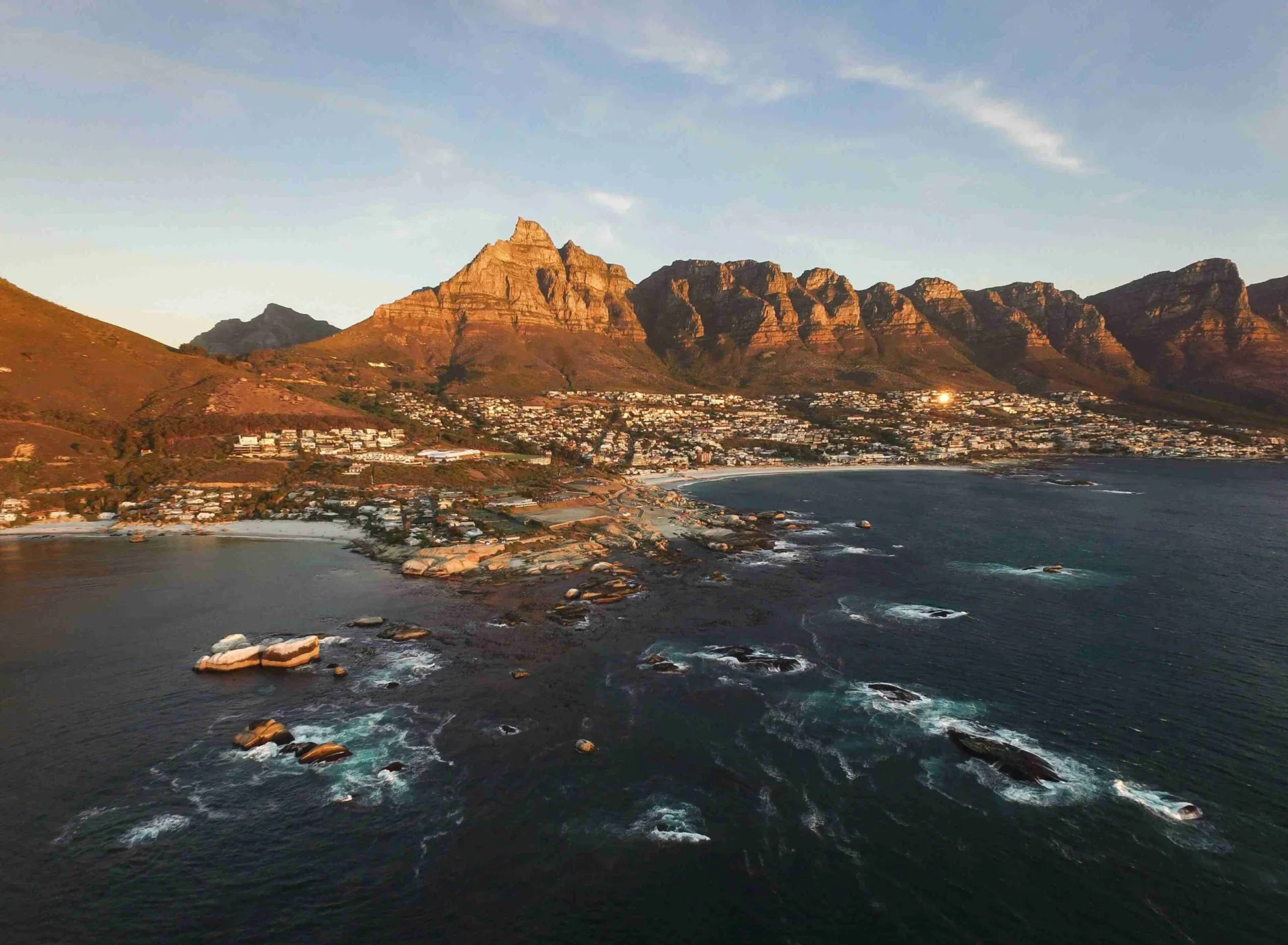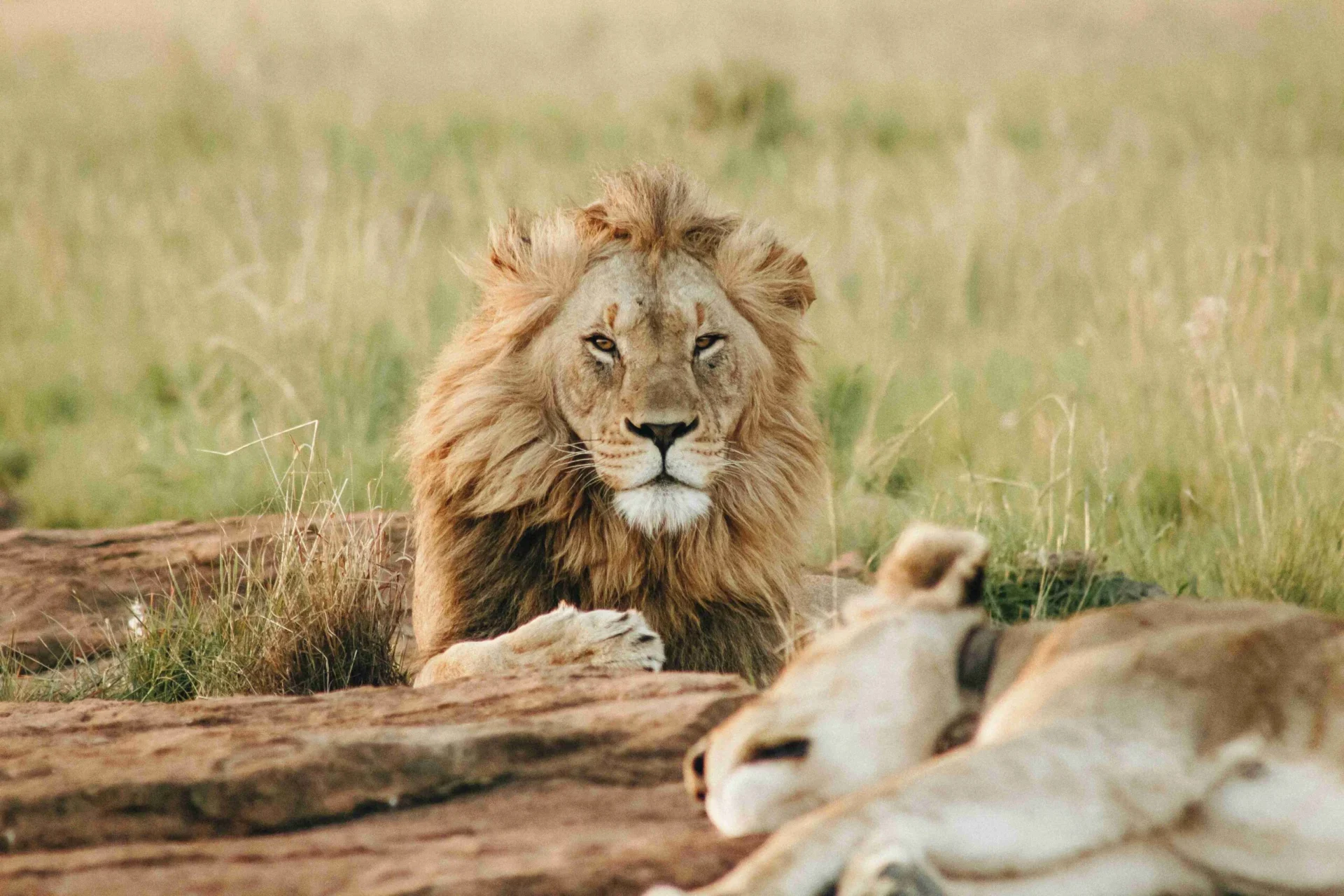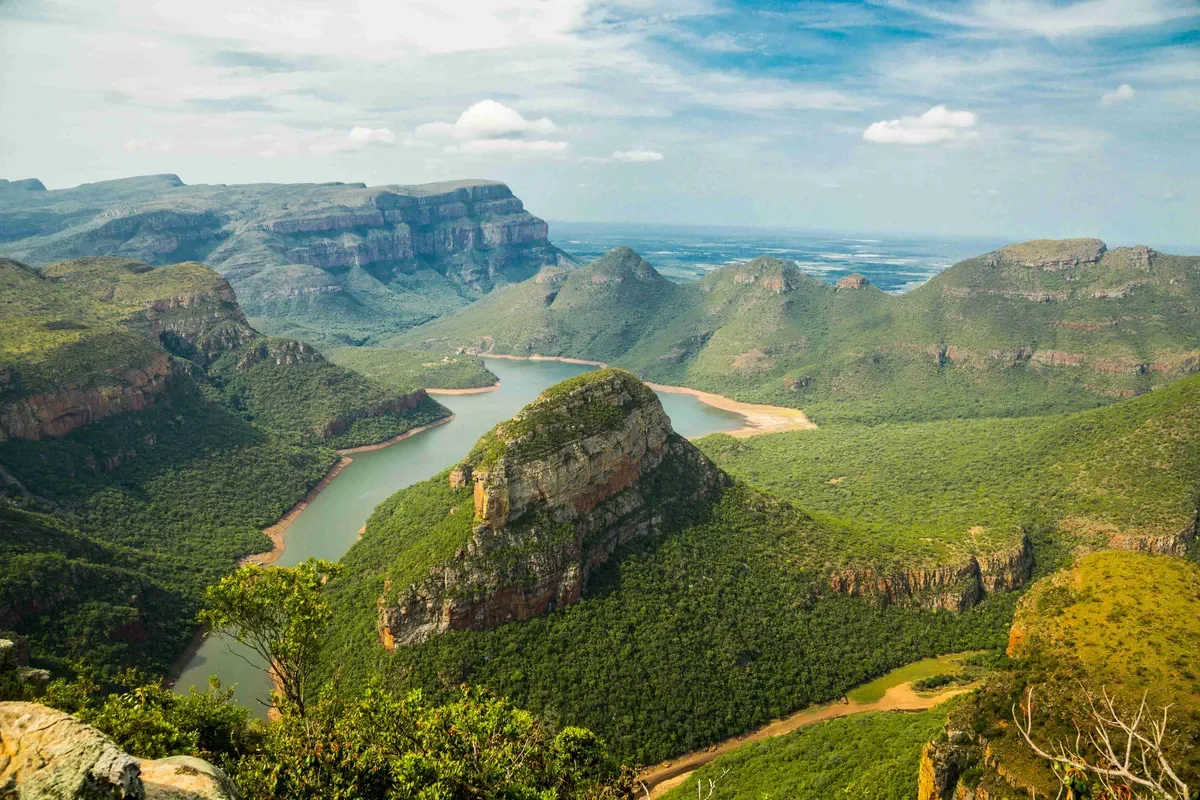South Africa is a country of incredible diversity, offering everything from stunning beaches to thrilling safaris. Knowing when to visit can make or break your trip. This guide will walk you through the best times to experience all South Africa has to offer, month by month.
Planning Your Travel to South Africa
Natural parks and reserves are undoubtedly the crown jewels of any trip to South Africa. Careful planning is crucial to maximize your safari experience, as timing can greatly influence your chances of spotting various animals.
However, if you have other considerations, such as budget or weather preferences, it’s helpful to have a quick guide to determine the ideal time for your visit. Below, we outline key months and their advantages:
When is the Best Time to Visit South Africa?
South Africa is a destination that can be enjoyed year-round, but the best times to visit vary based on specific interests. If you’re eager to soak up the sun on the beach and savor wines, the best months to visit are from November to March. The summer season creates ideal conditions for relaxing on the beautiful beaches of Cape Town and exploring the vineyards of the Cape Winelands.
On the other hand, if you’re a wildlife enthusiast seeking optimal safari conditions, plan your visit between May and September.
When is the Cheapest Time to Visit South Africa?
South Africa is often perceived as an expensive travel destination, especially compared to other countries. The costs of accommodations, dining, and activities can accumulate quickly, particularly in popular tourist areas like Cape Town and Kruger National Park.
Despite its reputation for higher costs, South Africa can be quite accessible for those who plan strategically. The cheapest time to visit is generally during the winter months of May to September when accommodation rates drop significantly due to lower tourist demand. During this period, many travelers avoid South Africa because of the northern regions’ cooler temperatures ranging from 20°C to 25°C.
When is the Peak Travel Season in South Africa?
The peak travel season in South Africa typically spans from November to March. This period coincides with the summer, when the northern regions experience their wet season, resulting in lush green vegetation and excellent wildlife spotting opportunities. The coastal areas, particularly Cape Town and the Garden Route, attract many visitors looking to enjoy warm, dry weather and vibrant local cultures.
What is the Best Time for Safari Experiences in South Africa?
The best time to go on safari in South Africa is from May to September, during the dry winter months. This period is particularly advantageous for wildlife viewing, as the vegetation becomes sparse.
With limited water sources available, wildlife tends to congregate around rivers and waterholes, increasing your chances of seeing a variety of species. This is particularly true in renowned areas like Kruger National Park, where the dry conditions make seeing the Big Five—lion, leopard, elephant, buffalo, and rhino easier.
Are You Considering Driving in South Africa?
South Africa’s diverse terrain, which ranges from stunning coastlines to mountains, allows visitors to appreciate the country’s natural beauty and rich biodiversity. When planning your adventure, consider that the best months for driving in South Africa are generally from May to September.
However, obtaining an International Driving Permit (IDP) is essential before hitting the road. This permit ensures compliance with local driving regulations and provides a translation of your driver’s license, which can be invaluable during your travels.
January
January kicks off the year with a bang in South Africa. It’s the height of summer, and the weather is hot and sunny across most of the country. This is prime time for beach lovers, especially along the Western Cape and Garden Route.
Cape Town is particularly lively in January. The city’s beaches are packed with locals and tourists soaking up the sun. If you plan to visit popular spots like Table Mountain, it’s best to go early in the morning to beat the crowds and the heat.
While January is excellent for coastal adventures, there are better times for wildlife viewing because the lush vegetation makes it harder to spot animals in many game reserves. However, if you’re set on a safari, head to Kruger National Park. The park is teeming with newborn animals, and the green landscape is breathtaking.
Keep in mind that January is the peak tourist season. Prices are at their highest, and popular attractions can get crowded. Book your accommodations and activities well in advance if you’re planning a January trip.
February
February continues the summer vibe in South Africa. The weather remains hot and sunny, perfect for outdoor activities. Valentine’s Day gives the month a romantic flair, making it a popular time for couples’ getaways.
Beach towns are still bustling, but the crowds thin out as local schools reopen. February is an excellent time to enjoy coastal areas with more elbow room.
Wildlife viewing improves slightly in February as the vegetation begins to thin. Kruger National Park and other reserves offer good game viewing opportunities, especially towards the end of the month.
Many towns also host fun festivals in February. The Cape Town Carnival, for example, fills the streets with colorful costumes and lively music.
March
March marks the beginning of autumn in South Africa. The weather is starting to cool down, but it’s still warm and pleasant in most parts of the country.
This is one of the best months for a well-rounded South African experience. The slightly cooler temperatures make outdoor activities, from hiking to wildlife viewing, comfortable.
Safari conditions improve in March. As the vegetation thins out, animals become easier to spot. Kruger National Park and other reserves offer excellent game viewing opportunities.
March is also a great time to explore wine country. The vineyards around Stellenbosch and Franschhoek are beautiful as the leaves change color. Many wineries host harvest festivals during this time.

Source: Photo by Finding Dan | Dan Grinwis on Unsplash
April
April brings milder temperatures and the full beauty of autumn to South Africa. The weather is generally sunny and dry, making it ideal for outdoor adventures.
Easter often falls in April, bringing a festive atmosphere and school holidays. Popular tourist spots can get busy during this time, so book in advance if you’re planning an Easter getaway.
Wildlife viewing continues to improve in April. The cooler weather means animals are more active during the day, increasing your chances of spotting the Big Five.
April is also a fantastic month for hiking. The Drakensberg Mountains are breathtaking this time of year, with autumn colors painting the landscape.
May
May marks the transition from autumn to winter in South Africa. The weather gets cooler, especially in the evenings, but days are often sunny and pleasant.
This is the start of the whale-watching season along the coast. Hermanus, known as the whale-watching capital of South Africa, begins to see the arrival of southern right whales. They come to the warm waters off the coast to calve and nurse their young.
May is an excellent month for safaris. The dry winter weather means sparse vegetation, making it easier to spot wildlife. Animals tend to gather around water sources, increasing your chances of seeing a variety of species.
If you’re planning to visit Cape Town, May is a great time. The summer crowds have dispersed, and you can enjoy the city’s attractions without the hustle and bustle.
June
June brings winter to South Africa. While it can be chilly, especially at night, many parts of the country enjoy sunny, dry days.
This is peak safari season in many parts of South Africa. The dry weather forces animals to congregate around water holes for excellent game viewing.
June also marks the height of the whale-watching season. Towns like Hermanus and Plettenberg Bay offer fantastic opportunities to see these majestic creatures up close.
If you’re a winter sports fan, head to the Drakensberg Mountains. While South Africa isn’t known for skiing, you might catch some snow on the high peaks.
July
July is the heart of winter in South Africa. It’s one of the coldest months but also one of the driest in many parts of the country.
This is prime time for safaris. The dry conditions mean the bush is less dense, and animals are easier to spot as they gather around water sources. Kruger National Park and other reserves offer spectacular wildlife viewing opportunities.
Whale watching continues to be excellent in July. The waters around Hermanus are full of Southern Right Whales, offering unforgettable sightings.
While it can be chilly, July is a great time to explore cities like Cape Town and Johannesburg. The number of tourists is lower, so you can enjoy attractions without the crowds. Just remember to pack warm clothes for the cool evenings.
August
August sees the first hints of spring in South Africa. While still cool, temperatures rise, and in some areas, the first spring flowers bloom.
This is one of the best months for a safari. The dry conditions persist, making wildlife easy to spot. In Kruger National Park, you have an excellent chance of seeing the Big Five.
Whale watching reaches its peak in August. The waters around Hermanus teem with Southern Right Whales, offering spectacular viewing opportunities.
If you’re interested in flora, head to the Northern Cape. The Namaqualand region bursts into color as millions of wildflowers bloom, creating a stunning natural spectacle.

Source: Photo by Wade Lambert on Unsplash
September
September heralds the arrival of spring across South Africa. The weather warms up, and days get longer, making visiting a delightful time.
This is one of the best months for an all-round South African experience. The weather is generally warm and dry, perfect for outdoor activities. Wildlife viewing remains excellent, as animals are still concentrated around water sources.
September is famous for the wildflower displays in the Western Cape and Northern Cape. The landscape transforms into a carpet of vibrant colors, offering breathtaking photo opportunities.
Whale watching continues to be excellent in September. It’s also a good time to visit Cape Town, as the weather is pleasant and tourist numbers are still relatively low.
October
October brings warmer temperatures and the full bloom of spring to South Africa. It’s a month of new beginnings, with many animals giving birth in the wild.
This is an excellent time for safaris. In places like Kruger National Park, you can witness the circle of life as newborn animals take their first steps. The vegetation is still relatively sparse, making wildlife spotting easier.
October is also great for beach holidays. The weather is warm enough for swimming in many coastal areas but not as hot as the peak summer months.
If you’re interested in culture, October hosts many arts festivals nationwide. It’s a great time to experience South Africa’s vibrant arts scene.
November
November sees the start of summer in South Africa. Temperatures rise, and the first summer rains begin to fall in some areas.
This is an excellent month for beach holidays. Coastal areas like the Garden Route are warm and sunny, perfect for swimming and sunbathing. It’s also a good time to visit Cape Town before the peak summer crowds arrive.
Wildlife viewing is still good in November, although it can become more challenging as vegetation thickens with the rains. However, this is an excellent time to see newborn animals in many game reserves.
November is also the start of the turtle nesting season along the KwaZulu-Natal coast. You can witness these amazing creatures coming ashore to lay their eggs.
December
December brings the full heat of summer and holiday cheer to South Africa. It’s the start of the long summer school holidays, and the country is in a festive mood.
This is the peak season for beach holidays. Coastal areas are busy with locals and tourists enjoying the sunny weather. It’s a great time for water sports and outdoor activities.
While not the best month for safaris due to thick vegetation and scattered water sources, game reserves still offer good wildlife viewing opportunities. Many animals have their young during this time, adding to the excitement.
December is also fantastic for cultural experiences. Many towns host festive markets and events, offering a chance to experience South African holiday traditions.
Remember, December is the busiest and most expensive month to visit South Africa. If you’re planning a December trip, book well in advance.
Driving Around South Africa
Driving is a popular way to explore South Africa’s vast landscapes. However, it is essential to be aware of the country’s road conditions and driving regulations.
Road Conditions
- National Roads: The national road network is generally well-maintained, especially near major cities.
- Provincial and Regional Roads: These roads can vary in quality, with some sections less paved or in poor condition.
- Off-Road Driving: If you plan to venture off the beaten path, be prepared for challenging road conditions and the need for a four-wheel drive vehicle.
Driving Regulations
- Driving on the Left: South Africa drives on the left side of the road.
- Speed Limits: Adhere to speed limits posted in kilometers per hour.
- Seat Belts: Wearing seat belts is mandatory for all passengers.
- Alcohol Limits: The legal blood alcohol limit is 0.05%.
- International Driving Permit: While only sometimes strictly required, having a global driver’s license can simplify the rental process and provide proof of your driving credentials.
Tips for Driving in South Africa
- Rent a Car with Insurance: It’s recommended to rent a car with comprehensive insurance to protect yourself against accidents and theft.
- Be Cautious of Animals: Watch for animals crossing the road, especially in rural areas.
- Plan Your Route: Use a reliable map or GPS to plan your route and avoid any potential road closures or construction.
- Be Patient: Traffic can get congested in cities, especially during peak hours.
- Fuel Up Regularly: Gas stations may be spaced out in some areas, so make sure you have enough fuel before embarking on long journeys.
By following these guidelines, you can safely and enjoyably explore South Africa by car, experiencing the country’s diverse landscapes and hidden gems at your own pace.
Choosing The Best Time To Go
The best time to visit South Africa depends on what you want to experience. The dry winter months from May to September are ideal for wildlife viewing.
The summer months from November to February are perfect for beach holidays and Africa safari getaways. If you want a bit of everything, consider the shoulder seasons of March-April or September-October.
Whenever you visit, South Africa promises an unforgettable adventure. From thrilling safaris to beautiful beaches, from vibrant cities to stunning landscapes, this diverse country has something for everyone all year round.
Frequently Asked Questions
Is it safe to travel to South Africa?
South Africa is generally a safe destination for tourists. However, it’s important to exercise caution and be aware of your surroundings, especially in urban areas.
Do I need a visa to visit South Africa?
Visa requirements vary depending on your nationality. It’s essential to check the visa requirements for South Africa well in advance of your trip.
What vaccinations are recommended for travel to South Africa?
Consult your healthcare provider for specific vaccination recommendations based on your itinerary and health history. Routine vaccinations such as tetanus, diphtheria, and polio are generally recommended.
What is the cost of living in South Africa?
The cost of living in South Africa varies depending on the region and your lifestyle. Accommodation, food, and transportation costs can be relatively affordable compared to other Western countries.
What should I pack for a trip to South Africa?
Pack comfortable clothing suitable for the climate you’ll be experiencing. Don’t forget to bring sunscreen, a hat, and insect repellent. Bring sturdy shoes and comfortable clothing if you plan to go on a safari.
What is the best way to experience South African culture?
Interact with locals, visit traditional villages, and attend cultural events to understand South African culture better.
What is the best way to stay connected while traveling in South Africa?
Most major cities have reliable Wi-Fi. You can buy SIM cards from local providers.







